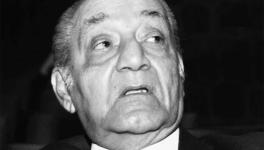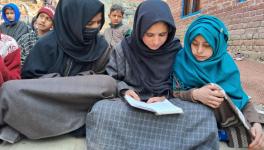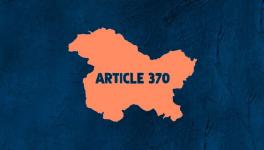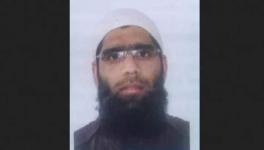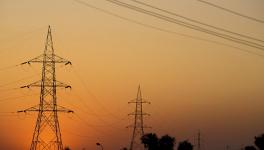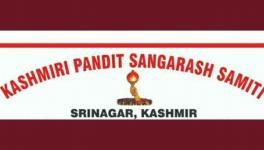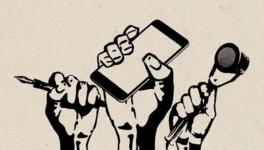A Face to Dr Omar Saleem

The Telegraph reported that a Kashmiri doctor Omar Salim was whisked away for ostensibly holding up a placard to say that he was not protesting but requesting, and speaking about the dire strait of patients in the Valley under curfew.
His request, spoken in calm matter-of-fact tones was that patients in a critical state be allowed access to the hospital as curfew was endangering their lives, particularly those on chemotherapy and dialysis. An argument that any conscientious doctor across the world would endorse and support.
Some of us in Delhi had met Dr Salim a few years ago, at a dialogue on Kashmir in the Vivekanand International Foundation in New Delhi of which current National Security Advisor Ajit Doval had been the Director at one time. The meeting was organised by retired Air Vice Marshal Kapil Kak. It was a free and frank discussion, also attended by the late editor of Rising Kashmir Shujaat Bukhari. As always Bukhari spoke with passion and facts, stressing on the need for dialogue between all concerned.
We were joined by this smart, highly intelligent doctor who had flown in from Mumbai where he was based. He spoke at some length, spoke with conviction, and all present in the room applauded his thoughts and his sentiment. His remarks were a forceful plea for talks, even as it was clear to all of us that medicine ran in Salim’s veins and he was passionate about the profession. He spoke a language that could be understood in Delhi’s power corridors, and yet brought home the problems faced by the Kashmiris in moderate and effective tones.
A successful urologist, Salim worked in both Srinagar and Mumbai, travelling the distance for surgeries in the big city. He was clear that he had little to do with politics, but felt the need for confidence building measures to ensure that there was free movement, and the people of Jammu and Kashmir had clear access to medicine and treatment.
I had a separate little chat with him on these lines, and he agreed that women in Kashmir suffered particularly, with depression and suicidal tendences being a major issue. He also felt that while the doctors were well trained, medical facilities remained archaic, and blockades and clampdowns impacted patients adversely. For the meeting he had come well prepared, spoke from written notes, and left fairly happy that his concerns had been heard.
As far as one could gather from The Telegraph report Salim remained on the same lines in these intervening few years. He covered 65 km on a cycle we were told after the Pulwama massacre, for the road blocks to be removed so that critical patients could travel to the hospitals. Even now while standing outside the Government Medical College he was speaking on his pet theme in a conflict situation: access for patients.

His placard that he was not out to protest underlined his determination not to dabble in politics. His words further endorsed this as all he spoke about were his patients who could not come in for chemotherapy. Or get the drugs from Delhi, as a result of which treatments were postponed. Salim also spoke of dialysis patients who instead of thrice a week were able to come only once a week, and were unable to raise the funds for this as well. He said that their lives were endangered as a result.
Salim in fact complimented the authorities for making Jammu and Kashmir the “number one state” under the Ayushman Bharat scheme. He went on to say as per the media reports, “Most important, we have 15 lakh patients registered under the Ayushman Bharat scheme. We are the number one state in India in terms of the scheme’s penetration. None of the beneficiaries are able to come and claim the benefits because there is no Internet and the card system is defunct.”
“If patients don’t receive dialysis, they will die. If cancer patients don’t receive chemotherapy, they will die. Those patients who can’t be operated on can die,” he said. Indisputable in a situation where movement is restricted.
He was whisked away by the cops even as he was speaking. A report recently stated he has been released but there is no independent confirmation of this.
Get the latest reports & analysis with people's perspective on Protests, movements & deep analytical videos, discussions of the current affairs in your Telegram app. Subscribe to NewsClick's Telegram channel & get Real-Time updates on stories, as they get published on our website.









